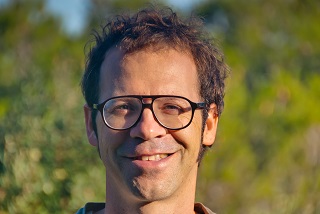My research is focused in the emerging field of movement ecology, which aims to reveal the complex forces that drive movement and dispersal patterns of animals (including humans). Improved tracking technology (GPS, bio-loggers, smart-phones) demands an integrative view, with new computational tools and modeling frameworks to understand unprecedented levels of detail from a constantly growing number of species. I am contributing to this scientific revolution based on a broad, highly collaborative and interdisciplinary research program, founded solidly on statistical physics and quantitative ecology. A central question in my research is how animals use information and their motor properties to optimize search strategies. The mechanistic linkage between behavioral processes and movement patterns is also key to understanding globalised problems such as the perpetuation of social inequality among humans or the spread of vector-borne infectious diseases.
Keywords: Movement Ecology, Search behaviour, Optimal foraging, Migration, Conservation Biology, Invasion ecology, Human mobility, Computational and Theoretical Ecology



